Last week CNN Travel profiled Taiwan’s new gourmet dining train called the “Moving Kitchen.” Sparked by an open letter from a Taipei-based architect, it features a bar, a kitchen and two new dining cars with seats for 54, according to CNN. With 33 business class seats, travel booking by Lion Travel and food provided by the Silks Hotel group, this large outlay of public monies is obviously aimed at a miniscule class of affluent travelers. This follows a pattern common to public programs the world over, in which public investments are aimed at luxury consumers, rather than those of us who use the system daily and need a wider range of services.
My thought was, when I saw it, was simple: “got space for useless gourmet train, but none for bikes.”
If you read the Taiwan Railways Administration (TRA) Web site on bikes, it says all sorts of things, in lame and confusing “we have funding for gourmet train but not for professional translation and editing services” English. I am sure readers will quickly grasp the meaning of sentences like “People and passengers: bicycles can be brought to the train and the same passengers as the passengers.”
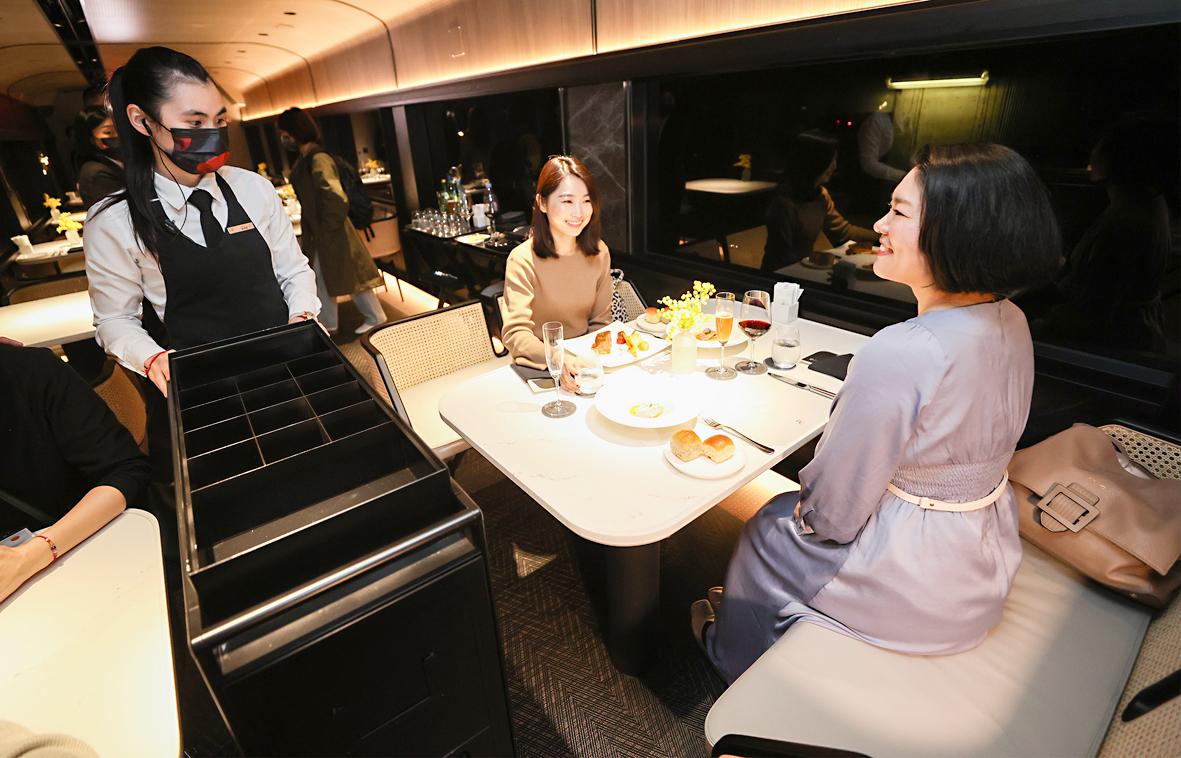
Photo: CNA
It’s not often I have to employ a translator to read English.
The regulations themselves are complicated, specifying in great detail, this or that train, costs and so forth. So bad are they that a number of helpful English language sites have arisen to explain them, like rabbis making the Mishnah clear to ordinary people.
REDUCED SERVICES
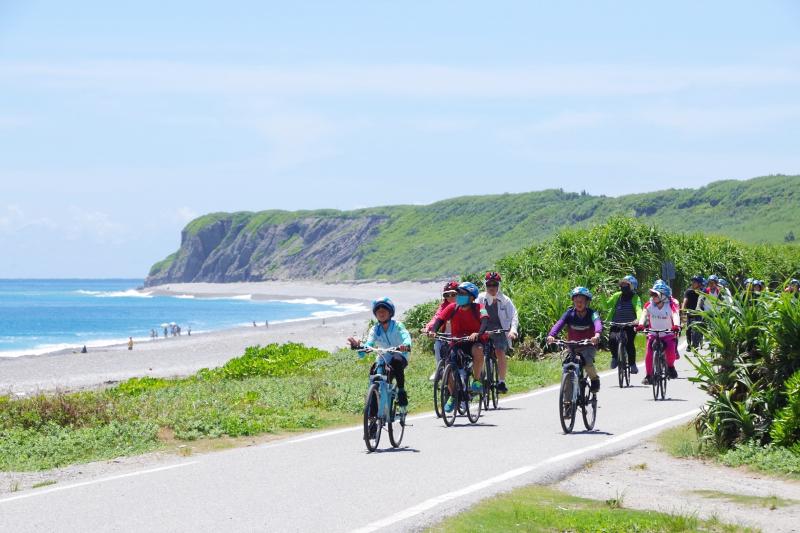
Photo courtesy of the Hualien City Government
Although the TRA advertises itself as bicycle-friendly, and other government Web sites refer to it that way, in recent years its services for bikes have actually been reduced. It used to be that certain express trains had a final car designated for bikes, with clips so you could simply roll bikes on. Why was this useful service terminated?
The TRA has also killed its wonderful bike shipping service, which you could use to ship your bikes to many stations around the country. I used it hundreds of times.
As is so often the case, “improvements” also led to declines in service. The elevated rail lines in Taichung meant that the old bike shipping service was no longer offered from the stations in that city and goods had to be schlepped to either Fongyuan District (豐原) or Changhua (the elevated lines also lengthened the time passengers needed to board a train, but things were better for car drivers who were not using the train. Priorities!).
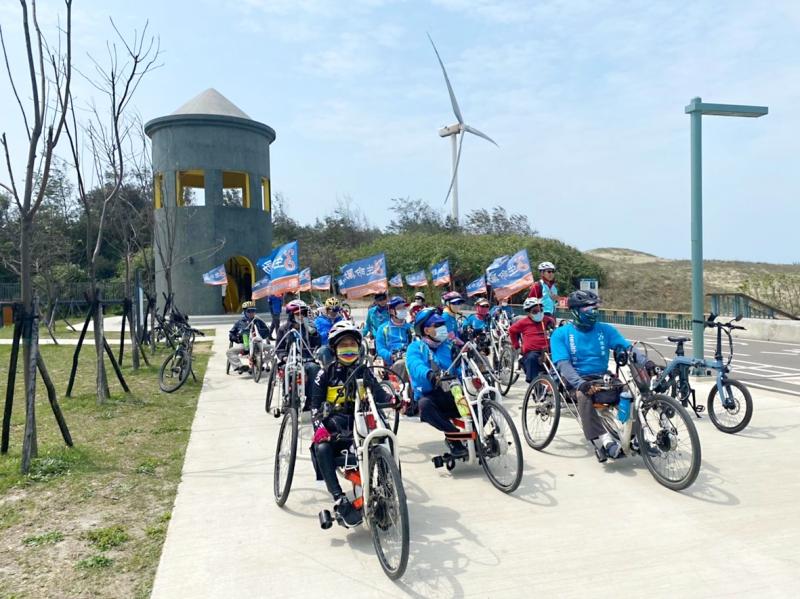
Photo: Hong Mei-hsiu
For commentary on TRA’s bike-friendliness, I turned to my friend (and occasional Taipei Times contributor) Mark Roche, who is well known in the foreign cycling community, and who used to operate a small bike tour company in the antiquarian age before COVID-19. Roche has been active in trying to get TRA to change its policies.
Last year Roche detailed some of the problems we cyclists regularly encounter on TRA trains in a letter to the company. He pointed out that if he brings his heavy touring bike to a station, he is never permitted to wheel it onto the platform and bag it there. He has been told that is unsafe.
However, if he is riding a local and buys a ticket for his bike, he can easily wheel the bike onto the platform. “It seems,” he observed, “the only thing TRA is concerned about is whether I am paying extra money for the bike and [the] regulation has nothing to do with safety.”
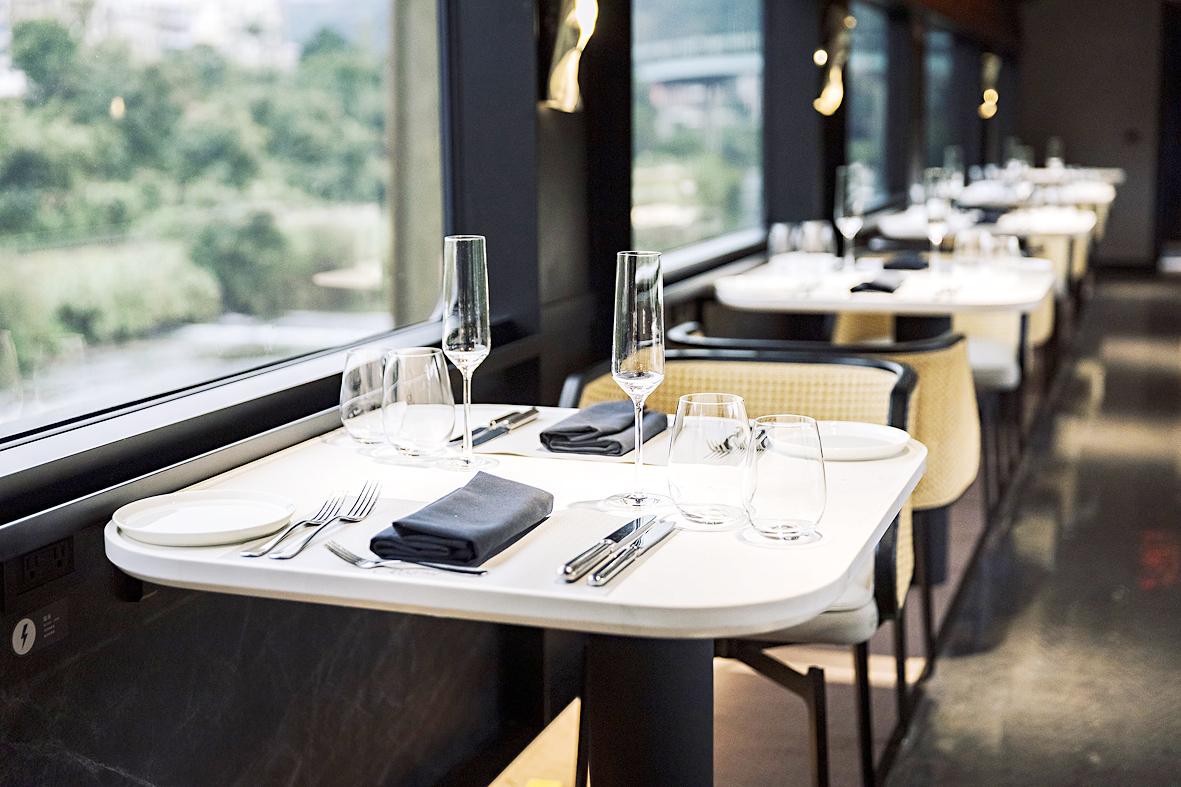
Photo: Wang Shan-yan, Taipei Times
I have never been permitted to bag or unbag my bike on the platform, meaning that I have to carry it through the station, occasionally bashing people or objects or once, tumbling down stairs when I overbalanced with a heavy bike. It would be much safer if all cyclists could wheel their bikes to the platform and bag/unbag them there — indeed many stations have stairs equipped for that — not just those who have purchased a ticket for a local.
“When I go to any train station and tell the staff at the ticket counter that I am taking a bike on the train,” he continues, “I ask them which car has larger luggage space or somewhere to put my bike, but they never know the answer to this question. Usually, they just tell me to go find space myself. This is a terrible service.”
As an avid cyclist, I have had this experience many times myself. Staff are confused about or even ignorant of the rules. Downstairs you buy a ticket and are told it’s no problem to put a bike on the train. Upstairs at the platform gate the TRA employee tells you that you cannot put that bike on the train.
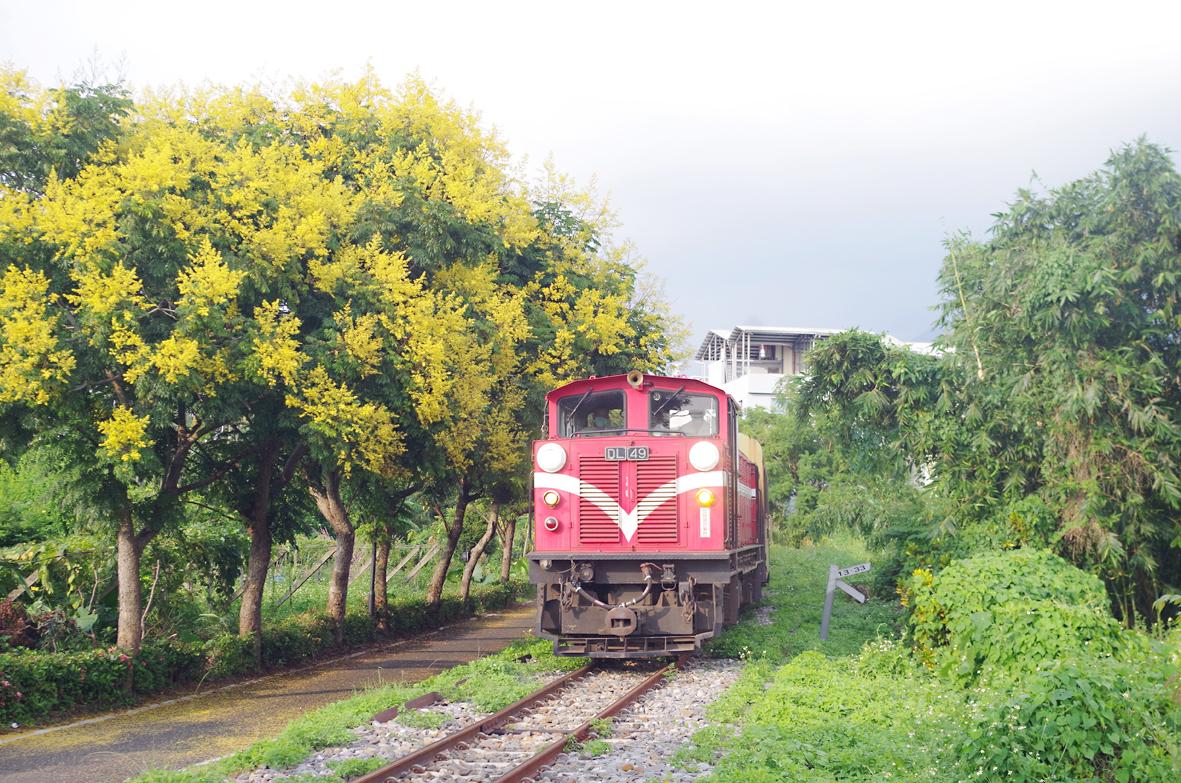
Photo: Wang Shan-yan, Taipei Times
This caprice means that every time I try to put a bike on a train, I find myself steeling for a confrontation. Yet this caprice also means that conductors often wink at regulations. My bike and I have had many wonderful experiences with humane and generous TRA staff. My thanks to you all.
I told Roche that now when I want to put a bike on the express train, I purchase two express tickets, one for me and one for the bike. I set the bike up in the seat next to me. So far I have not been challenged when doing that. It’s a suboptimal solution for all concerned, but at least it works.
He replied: “I refuse to do that. It’s the principle of the thing. I should be able to buy a half fare ticket and roll the bike onto any train.”
This is one of his recommendations to the TRA.
“Always charge for the bike,” he suggests. “Most people would prefer not to take their bike apart and put it in a bag. They are afraid of an expensive bike getting damaged. Half adult fare for a bike is not expensive and I think most people would accept this charge if they know their bike will be in a safe place.”
That is exactly why I purchase a seat for my bike. Roche also called on the TRA to ensure that every train – not just designated trains – has 1-2 spaces for bikes.
Ironically, Roche wrote that letter last year, the Year of the Bicycle here in Taiwan.
LIBERALIZE BIKE POLICIES
The TRA needs to liberalize its bike policies. Sometime this year Taiwan will likely re-open to tourism. Our nation is already well known for its cycling, and the TRA needs to get onboard with making things easy and comfortable for cyclists from overseas who want to use its services without hassles, misunderstandings and angry confrontations.
The other reason TRA needs to rethink its restrictive bike policies is to support city planning for car-free downtowns. Around the world numerous cities have designated car-free areas or have gone entirely car-free. Indeed, Jason Hu (胡志強), the former Chinese Nationalist Party (KMT) mayor of Taichung, was contemplating such a move for downtown Taichung before he was ousted from office. Local governments dependent on tourism, such as Miaoli and Taitung counties, should also be pushing the TRA to simplify and expand its bike services.
Imagine it: TRA change could help drive change that would make Taiwanese cities more livable and environmentally friendly.
And users happier. Win-win, for sure.
Notes from Central Taiwan is a column written by long-term resident Michael Turton, who provides incisive commentary informed by three decades of living in and writing about his adoptive country. The views expressed here are his own.

Jacques Poissant’s suffering stopped the day he asked his daughter if it would be “cowardly to ask to be helped to die.” The retired Canadian insurance adviser was 93, and “was wasting away” after a long battle with prostate cancer. “He no longer had any zest for life,” Josee Poissant said. Last year her mother made the same choice at 96 when she realized she would not be getting out of hospital. She died surrounded by her children and their partners listening to the music she loved. “She was at peace. She sang until she went to sleep.” Josee Poissant remembers it as a beautiful

For many centuries from the medieval to the early modern era, the island port of Hirado on the northwestern tip of Kyushu in Japan was the epicenter of piracy in East Asia. From bases in Hirado the notorious wokou (倭寇) terrorized Korea and China. They raided coastal towns, carrying off people into slavery and looting everything from grain to porcelain to bells in Buddhist temples. Kyushu itself operated a thriving trade with China in sulfur, a necessary ingredient of the gunpowder that powered militaries from Europe to Japan. Over time Hirado developed into a full service stop for pirates. Booty could

Before the last section of the round-the-island railway was electrified, one old blue train still chugged back and forth between Pingtung County’s Fangliao (枋寮) and Taitung (台東) stations once a day. It was so slow, was so hot (it had no air conditioning) and covered such a short distance, that the low fare still failed to attract many riders. This relic of the past was finally retired when the South Link Line was fully electrified on Dec. 23, 2020. A wave of nostalgia surrounded the termination of the Ordinary Train service, as these train carriages had been in use for decades

Lori Sepich smoked for years and sometimes skipped taking her blood pressure medicine. But she never thought she’d have a heart attack. The possibility “just wasn’t registering with me,” said the 64-year-old from Memphis, Tennessee, who suffered two of them 13 years apart. She’s far from alone. More than 60 million women in the US live with cardiovascular disease, which includes heart disease as well as stroke, heart failure and atrial fibrillation. And despite the myth that heart attacks mostly strike men, women are vulnerable too. Overall in the US, 1 in 5 women dies of cardiovascular disease each year, 37,000 of them